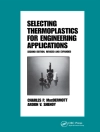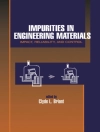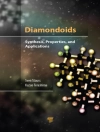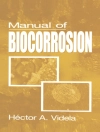In recent years bioprocessing has increased in popularity and importance, however, bioprocessing still poses various important techno-economic and environmental challenges, such as product yields, excessive energy consumption for separations in highly watery systems, batch operation or the downstream processing bottlenecks in the production of biopharmaceutical products. Many of those challenges can be addressed by application of different process intensification technologies discussed in the present book.
The first book dedicated entirely to this area, Intensification of Biobased Processes provides a comprehensive overview of modern process intensification technologies used in bioprocessing. The book focusses on four different categories of biobased products: bio-fuels and platform chemicals; cosmeceuticals; food products; and polymers and advanced materials. It will cover various intensification aspects of the processes concerned, including (bio)reactor intensification; intensification of separation, recovery and formulation operations; and process integration. This is an invaluable source of information for researchers and industrialists working in chemical engineering, biotechnology and process engineering.
Spis treści
Intensified Fermentation Processes and Equipment; Rotating Bioreactors: Concept, Designs and Applications; Intensified downstream processing in biofuels production; Improving fermentation by product removal; Liquid-Liquid extraction in processing of bioproducts; Organic Solvent Nanofiltration for an Intensified Processing of Renewable Raw Materials; Green Fuels and Fuel Additives Production in Simulated Moving Bed Reactors; Intensification of Enzymatic Hydrolysis of Cellulose Using High-Frequency Ultrasound; Process Intensification for Hydroprocessing of Vegetable Oil; Enzymatic reactive absorption (ERA) and distillation (ERD); Process Intensification of Immobilised Enzyme Reactors; Process Intensification of Enzymatic Biotransformation Processes; Microalgae: From biobased curiosity towards a bulk feedstock; Process Intensification in Glutamic Acid Production; Intensified production of recombinant proteins; Intensification of Aqueous Two-Phase Extraction for Protein Purification; Intensification of Functional Foods Production; Microwave-enhanced extraction; Intensified food processing through membrane operations; Intensified brewing systems; Novel processing concepts for making fibrous food products; The usefulness of direct digital manufacturing for biomedical applications; Alternative energy forms in manufacturing, processing and applications of biopolymers and biomaterials
O autorze
Full Professor and Chair of Process Intensification at Delft University of Technology, the Netherlands, and former Director of TU Delft Process Technology Institute. With more than 40 years of industrial and academic research experience he is author of numerous scientific publications on process intensification, chemical reaction engineering and industrial catalysis. He is principal author and co-editor of the world’s first book on Process Intensification. Prof. Stankiewicz is Editor of Chemical Engineering and Processing: Process Intensification (Elsevier) and Series Editor of the Green Chemistry Books Series (Royal Society of Chemistry). He was founder and first Chairman of the Working Party on Process Intensification at the European Federation of Chemical Engineering. He currently chairs the Board of the European Process Intensification Centre (EUROPIC). Current research interests of Prof. Stankiewicz focus on control of molecular interactions and intensification of chemical reactions using electricity-based energy fields (e.g. laser, microwave, UV). The research in that area has brought him prestigious Advanced Investigator Grant from the European Research Council. More recently, Prof. Stankiewicz coordinated the H2020 “ADREM” project on methane valorization using alternative forms of energy in modular catalytic reactors.












